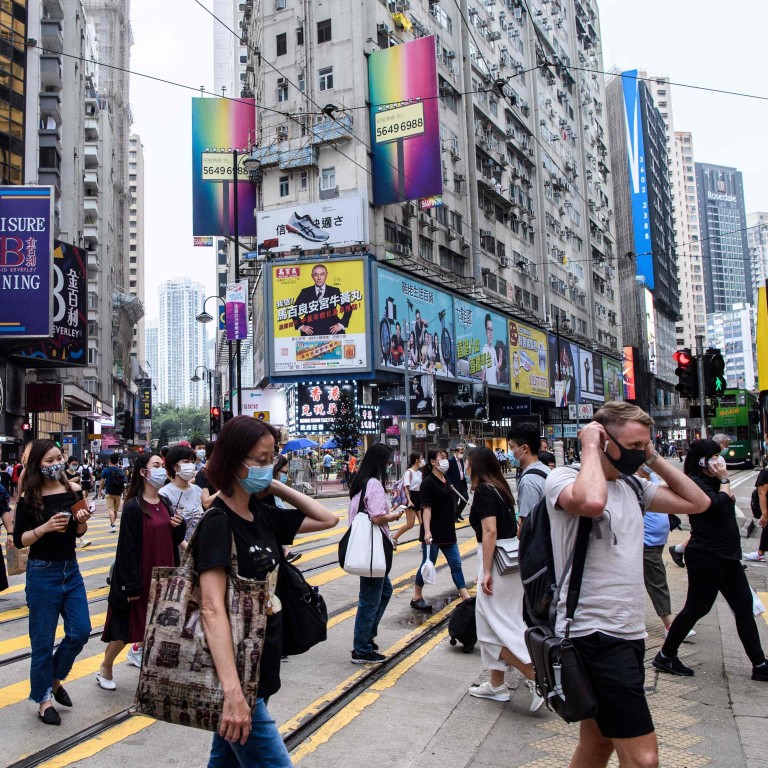
Coronavirus: which employers are among first batch to get subsidies? Hong Kong government reveals listed companies, small firms
- Total of HK$11.4 billion disbursed in two batches over the past two weeks, involving 59,500 employers and 490,000 employees
- Beneficiaries include Hong Kong Television Network Limited, Marks and Spencer, Chow Tai Fook Enterprises, China Airlines and China Southern Airlines
Hong Kong’s government has revealed a list of 25,500 businesses in the first batch of employers subsidised under the coronavirus relief package, with a hospital group emerging as the top beneficiary.
Recipients ranged from listed companies to small firms and restaurants.
A government spokesman said a total of HK$11.4 billion was disbursed in two batches over the past two weeks, involving 59,500 employers and 490,000 employees. Authorities have not released the list for the second batch.

Among the beneficiaries, HKSH Medical Group took up the largest share with subsidies of HK$86 million (US$11 million). The group with 3,238 employees runs Hong Kong Sanatorium and Hospital in Happy Valley and a few medical centres across the city.
News of the hospital receiving aid drew criticism from internet users, who argued that the facility, popular among the rich and mainlanders, should not have asked for public funds.
A spokesman for HKSH Medical Group said it had been seriously affected by the pandemic, with outpatient figures dropping 50 per cent and in-patient numbers by 25 per cent, including locals.
The subsidies would be fully used for paying staff wages, including for nurses, allied health professionals and supporting staff, he said.
“To support the group’s financial stability, senior management will undertake a 10 per cent salary cut while the discretionary bonus for staff will not be distributed in 2020. The group will continue to exercise extreme prudence in controlling its operational and capital spending to meet the challenges ahead. The group will apply for Phase 2 of the ESS on a need basis.”
I.T. Apparels Limited was the next in line, pocketing more than HK$47 million with 1,800 employees.
Another listed local company receiving the subsidy was Hong Kong Television Network Limited, founded by business maverick Ricky Wong Wai-kay, taking in HK$32.7 million.
Promises of transparency in Hong Kong wage subsidy scheme, amid fears of abuse
Under the HK$81 billion coronavirus relief scheme, the government will, via employers, pay 50 per cent of employees’ salaries for six months, with the monthly subsidy for each worker capped at HK$9,000.
So far the government has received 170,000 applications from employers, accounting for about two-thirds of the eligible ones across the city.
Airlines are among the industries worst hit by the pandemic. China Airlines and China Southern Airlines received HK$6 million and HK$600,000, respectively.
Hong Kong’s flag carrier Cathay Pacific said it would also tap the fund to help pay 27,000 employees in the city, though it was not in the first batch.
ALP Retail, which runs the Marks and Spencer shops, received HK$14.6 million for its 849 employees.

Chow Tai Fook Enterprises, a private company owned by the family of the late tycoon of New World Development Cheng Yu-tung, received HK$1.66 million for its 63 staff.
Restaurant groups Fook Lam Moon and Hoi Tin Tong were also in the list.
Two popular “yellow shops” – Abouthai and Café De Jar Gor – received HK$1.4 million and HK$475,000 respectively. Some in the pro-establishment bloc have heaped scorn on shop operators seeking the administration’s aid, but who support the months-long anti-government protests, sparked last June by the now-withdrawn extradition bill.
“Ninety-eight per cent of the two batches of employers are from the micro, small or medium-sized enterprises sector, with fewer than 50 employees,” the spokesman said.
The government again reminded employers that if their number of employees on the payroll was smaller than that in March, they would have to pay a penalty.

